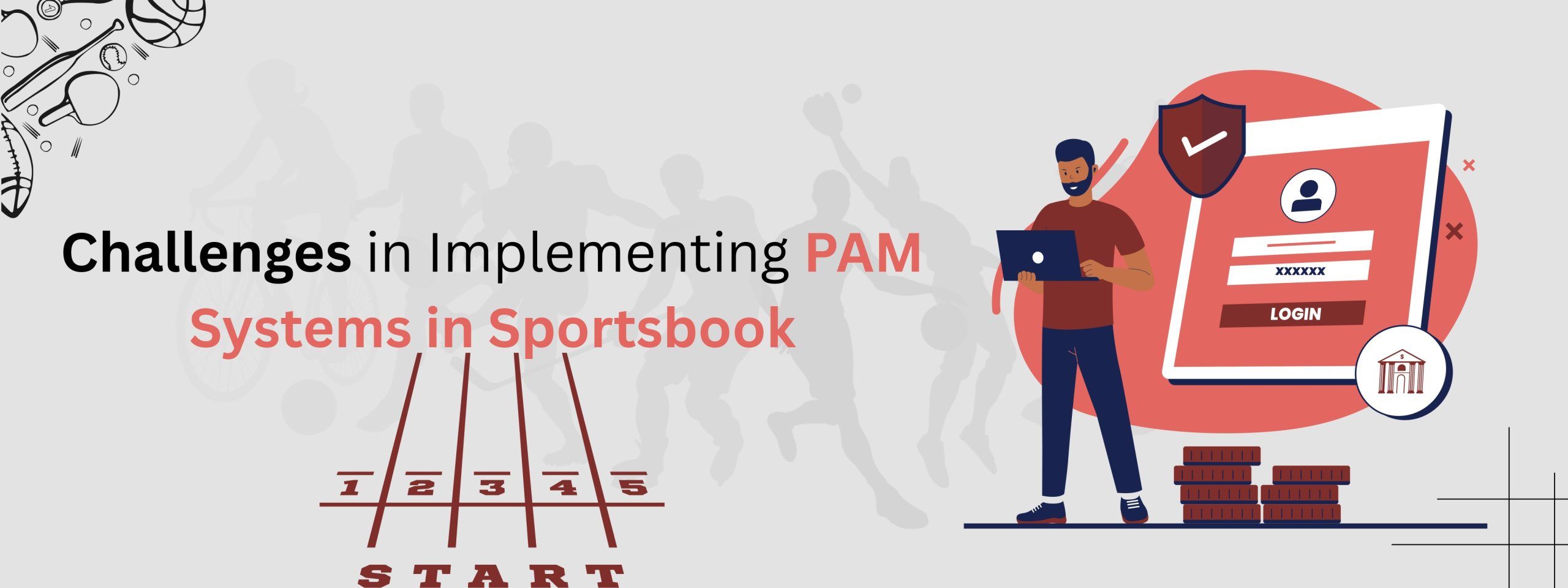Challenges in Implementing PAM Systems in Sportsbook

The sports betting industry is evolving rapidly, and Player Account Management (PAM) systems have become a core element of sportsbook platforms. A PAM system helps operators manage user accounts, deposits, withdrawals, bonuses, risk, and compliance seamlessly. While PAM integration is critical for running a modern sportsbook, it also comes with unique challenges that businesses must overcome to succeed.
In this blog, we’ll explore the key challenges in implementing PAM systems for sportsbooks and how the right approach can ensure smooth operations.
1. Regulatory and Compliance Complexity
Sports betting is governed by strict regional regulations that vary from one market to another. A PAM system must comply with:
- KYC/AML requirements for user verification.
- Geo-restrictions to block unauthorized regions.
- Age and identity verification to prevent underage betting.
- Tax and reporting compliance as per local jurisdictions.
The challenge lies in customizing PAM systems to meet multi-jurisdictional compliance while maintaining a smooth user experience.
2. Integration with Multiple Systems
A sportsbook ecosystem involves many moving parts:
- Odds and risk management systems (RMS)
- Payment gateways for deposits and withdrawals
- CRM and marketing automation tools
- Third-party content providers for sports feeds
The PAM system must integrate with all these without creating performance bottlenecks. Poor integration can lead to downtime, transaction errors, or data mismatches, directly impacting customer trust.
3. Scalability and Performance Issues
During high-demand events like the FIFA World Cup, IPL, or Super Bowl, sportsbooks experience massive traffic spikes. A PAM system must handle:
- Thousands of concurrent logins.
- Real-time betting updates.
- Instant payment processing.
If not designed for scalability, the system may suffer from crashes, slow loading times, or transaction failures—leading to loss of revenue and user dissatisfaction.
4. Data Security and Fraud Prevention
Since PAM systems handle sensitive personal and financial data, they are a prime target for cyberattacks. Key security challenges include:
- Protecting against identity theft and account takeovers.
- Detecting fraudulent activities like bonus abuse or money laundering.
- Securing payment transactions from breaches.
Robust encryption, AI-driven fraud detection, and continuous monitoring are required, but implementing these without hampering performance is a major challenge.
5. Personalization vs. Privacy Concerns
Sportsbooks use PAM systems to offer personalized promotions, bonuses, and betting recommendations. However, handling player data for personalization raises:
- Privacy concerns under laws like GDPR.
- Challenges in balancing user experience with data protection.
- Risk of losing customer trust if personalization feels intrusive.
Finding the right balance is crucial for retaining users while staying compliant.
6. Cost and Resource Allocation
Implementing a robust PAM system involves:
- High initial investment in technology.
- Ongoing costs for compliance updates and security audits.
- Skilled IT and regulatory teams to maintain the system.
For smaller sportsbook operators, these costs can become a major hurdle.
7. Legacy System Migration
Many operators already have legacy betting platforms. Integrating a modern PAM system with outdated infrastructure is challenging because:
- Data migration risks loss or corruption.
- Legacy systems may not support modern APIs.
- Transition requires careful phased rollouts to avoid service interruptions.
How Appristine Technologies Helps Sportsbook Operators
At Appristine Technologies, we specialize in building and integrating custom PAM systems for sportsbooks. Our expertise ensures:
- Regulatory compliance across multiple jurisdictions.
- Scalable architectures to handle peak event loads.
- Seamless integrations with payment gateways, risk management tools, and CRMs.
- Advanced fraud detection with AI-driven analytics.
- User-friendly dashboards for player management and reporting.
We help sportsbook operators reduce implementation risks, cut costs, and ensure smooth operations in a highly competitive market.
Conclusion
Implementing a PAM system in sportsbooks is essential for managing players, compliance, and operations. However, challenges like regulatory hurdles, integrations, scalability, and security risks make it a complex process. With the right technology partner, sportsbook operators can overcome these challenges and build platforms that are secure, scalable, and compliant.
If you’re looking to implement or upgrade your sportsbook with a modern PAM system, Appristine Technologies can help you build future-ready solutions tailored to your market.

